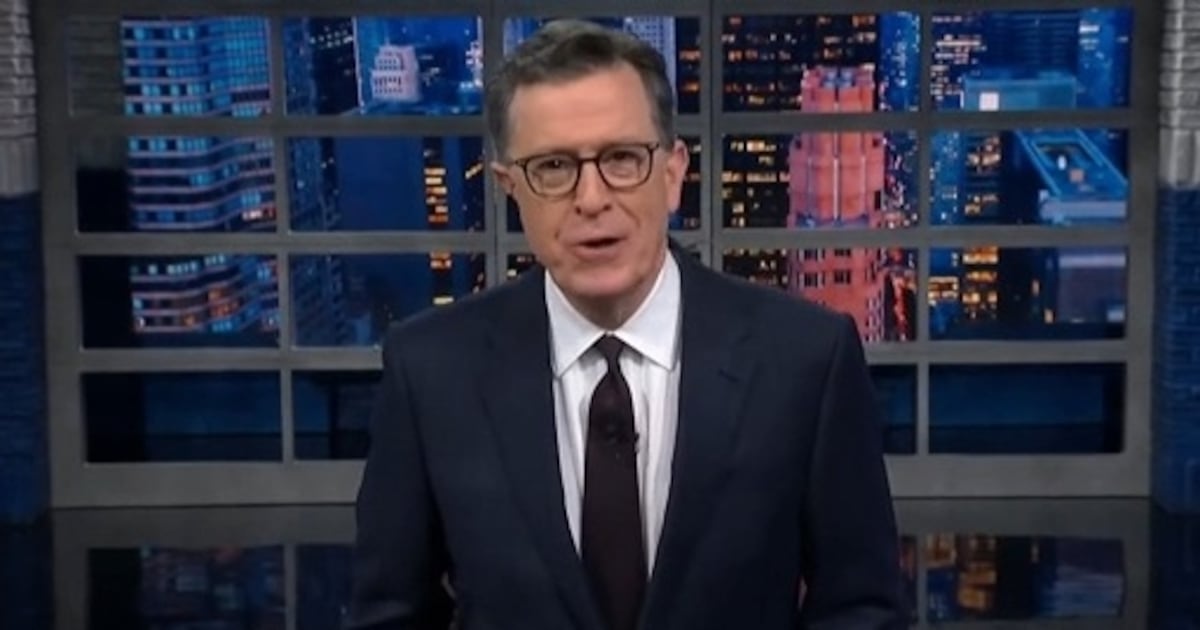Plenty of female singers from the turn-of-the-century teen-pop boom have been reevaluated in recent years through the lens of sexist, shabby treatment by their handlers, the media, and defensive rock fans. While their boy-band counterparts may not have been as directly shamed as Christina Aguilera or denied as much autonomy as Britney Spears, they were similarly disrespected in some corners based on the same assumptions about their audience: that stuff most vocally appreciated by young girls is stupid or lesser than the stereotypically young-male equivalent.
If this sounds like a familiar but workable starting place for an insightful documentary, Larger Than Life: Reign of the Boy Bands may not be for you. But if that relatively anodyne first paragraph just made you pump your first in triumph as a single tear of nostalgia slid down your cheek, get over to Paramount+ immediately. Though Larger Than Life purports to take its subjects a little more seriously than the average fanzine or hit piece, little in it is designed to make any boy-band admirer feel anything more complicated than delight at the very sight of New Kids on the Block, Backstreet Boys, NSYNC, and so on—to the point of glossing over genuine strife experienced by the boys-to-men (though, weirdly, not Boyz II Men) who actually lived it.

It’s not that the designated talking heads from each group—including AJ McLean from Backstreet, Lance Bass and Chris Fitzpatrick repping NSYNC, and an extremely game Donnie Wahlberg speaking for New Kids on the Block—have nothing negative to say. They’re all thoughtful and articulate about the ups and downs they’ve experienced. They also appear in relatively good spirits, perhaps because the movie allows them to massage the boy-band formation and album-making processes to emphasize their personal roles—an artistry that’s implied more than shown or discussed. In this movie’s evasive implication, the boy-band industry is scarcely much different than your average garage band: just friends getting together to make music and eventually sign draconian contracts.
Maybe professional songwriter Max Martin is there sometimes, sure; he’s not interviewed or described in great detail, but he’s named, and shown in some photographs. Who’s to say who did what on the actual songs? (For example: I had to learn on Wikipedia that Backstreet member Brian Littrell co-wrote a number of the songs on their 1999 smash Millennium; the movie doesn’t mention it either way.)
This elision of the actual sausage-making is telegraphed by a predictable opening comparison: Why, did you ever think that maybe acclaimed rock ‘n’ roll band The Beatles were the original boy band? The movie brings up this old chestnut as a way into the phenomenon of young, largely female fan adulation, a fair dot to connect even if it ignores just about everything else about the Beatles as artists. The movie also traces the modern boy band’s lineage back to Jackson 5 and the Osmonds (possibly because Donny Osmond seems particularly willing to chat on camera), before covering the ’80s boom led by New Edition, then New Kids on the Block. Next it’s on to the 2000-era heyday, with some material on later iterations like One Direction and the tireless next generation of K-pop.

Given the way much of the movie is segmented into various introductions and overviews, Larger Than Life might have made more sense as a miniseries, with time for deeper dives into these artists’ dynamics and interpersonal relationships. As it is, major figures like scammer Lou Pearlman, the former manager of both Backstreet and NSYNC, appear and disappear without much context. At one point, the movie half-explains that NSYNC was able to escape their Pearlman contract but Backstreet wasn’t, but offers no real specifics on how or why—nor, amazingly, the small detail that Pearlman ultimately died in federal prison in 2016. Meanwhile, the big example of acrimony between Backstreet and NSYNC is that awards shows had to make sure to sit them in separate sections.
Look, there’s nothing wrong with making an up-tempo boy-band doc, but who exactly is this broad overview for, and why was it directed by Tamra Davis? Here is a filmmaker with major youth-culture bona fides, having made Billy Madison, Half Baked, the rap spoof CB4, the Britney Spears vehicle Crossroads, and dozens of music videos, including several by groups profiled here. (Yes, she directed the clip for “MMMBop.”)
Surely she could have dug for material more interesting than vague, unchallenged statements like “the Backstreet Boys were masters of their own destiny.” Surely she could have at least curtailed the inexplicable sequence late in the movie where Donny Osmond blathers on about his friendship with Michael Jackson. It’s absolutely true that so-called boy bands are part of the pop firmament (and, for that matter, have survived on radio and as touring acts far longer than many of the rock contemporaries who were keeping it “real” in 2001). But blandly watchable puff pieces aren’t going to make that case.









